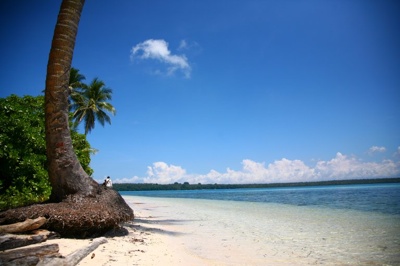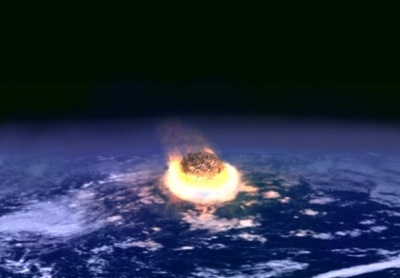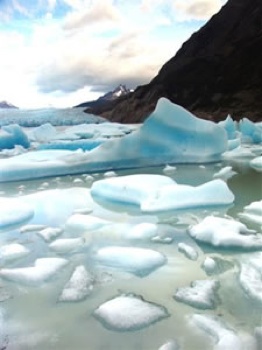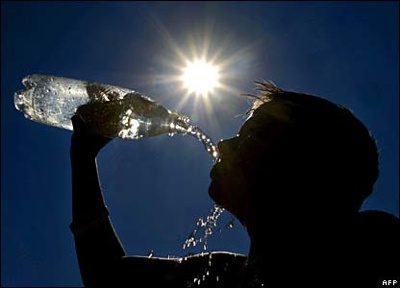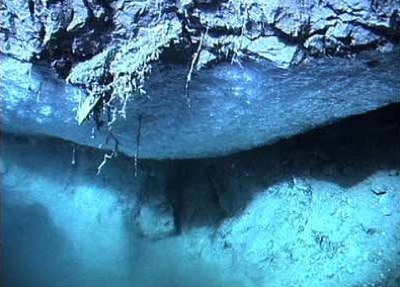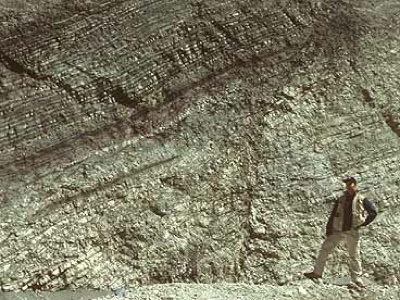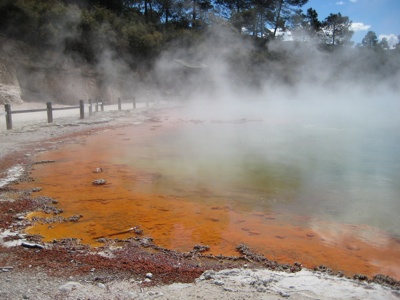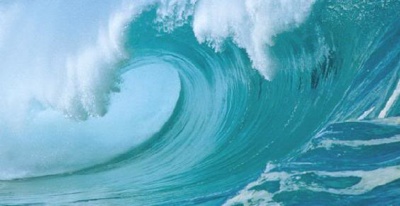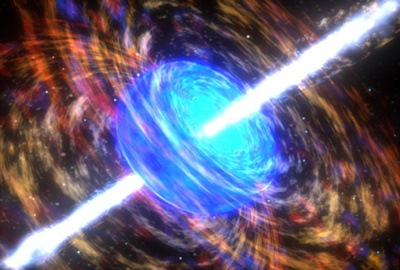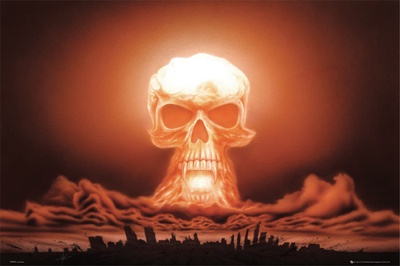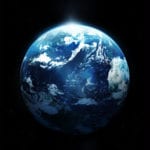Basically, if the sea levels drop drastically (whether it be through Global Cooling – more on that soon – or sinking of the mid-ocean ridges), it could reduce the area around the Continental Shelf (the most productive part of the oceans) causing a “marine mass extinction” meaning all the little fishies, sharks, whales and almost all the life in the big blue dies. If that’s not bad enough weather patterns can change drastically leading to mass extinctions on land (That means us!).
Hey is that a big space rock heading for us? Yes it is and it’s also the next nugget on the list. An Impact event caused the massive K/T extinction. Basically the big rock hits us sending “dust and particulate aerosols” which is geek speak for a lot of nasty shit up into the atmosphere. This blocks out the light from the sun which causes not only plants to die but also lowers the temperature. It gets worse, if the pesky rock hits rocks rich in Sulfur not only do we get darkness at noon but a wash of acid rain too! And did I mention the mega-tsunamis and global forest fires?
This was the plot of “The Day after Tomorrow”. For some reason the earth gets too cold too fast causing death for many polar and temperate region animals. This in turn would cause a mass migration to the equator, and make more of the earth a desert. Also good luck finding water as most of it is now ice and snow. This event humanity could probably survive though, so breath easy.
There it is, basically the other side to Global Cooling. This time Temperate species will be in danger and other animals are forced to the poles. Melting snow and ice will make the ocean deeper and possibly cause Anoxic events (see further down).
Simply put, there are these things called Clathrates forming on the Continental Shelf. Think of a “pig in a blanket” meaning a tiny sausage wrapped in a covering of bread. But instead of a delicious snack-food the clathrate is water covered methane. If these methane snacks break apart this would release the gas into the atmosphere causing accelerated Global Warming.
Oceanic anoxic events occur when the Earth’s oceans become completely depleted of oxygen below the surface levels. Although anoxic events have not happened for millions of years, the geological record shows that they have happened many times in the past. Anoxic events may have caused mass extinctions. The black lines in the image above are from the aptian anoxic event.
This might have happened during the Permian-Triassic extinction event, in which a warming trend upset the balance between Plankton and bacteria that reduce Sulfate. Imagine that massive emissions of hydrogen sulfide “aka Rotten egg and fart stink” suddenly rise from the ocean poisoning anything and everything on land and sea. And if that wasn’t enough it weakens the Ozone Layer exposing what’s left to UV radiation.
The ocean is made of water but more importantly it’s salt water. But it’s more salty up top than down below. Oceanic Overturn is basically the deeper water replacing the water up top. “So what right?” Wrong! Remember Anoxic Events? The water down there has less oxygen meaning that the critters on the surface and middle depths are as good as dead.
This one is my favorite! Imagine that it’s a normal night. You’re stargazing with your girl (or guy), when a flash lights up the night sky, rather close by “galactically” speaking. A star has exploded. Before you can say “oh shit!” you and everyone on Earth is dead. That was a Gamma Ray Burst that just slammed into you, but instead of mutating into a rampaging green behemoth, you die instantly. You see that Gamma basically killed every cell in your body. But if it was weak only the half of the planet facing it died instantly. For the other half the Ozone was ripped away exposing Earth to UV radiation, dead anyway!
Man has become so powerful that nature can virtually do him no harm. But unfortunately he has developed his own methods for self-extinction. The most obvious is nuclear war. We have enough nukes on the planet to destroy all life – something which has seemed imminent in the past (think Cuban missile crisis). We can but hope that one day we become peaceful enough to not use these weapons on a global scale.
